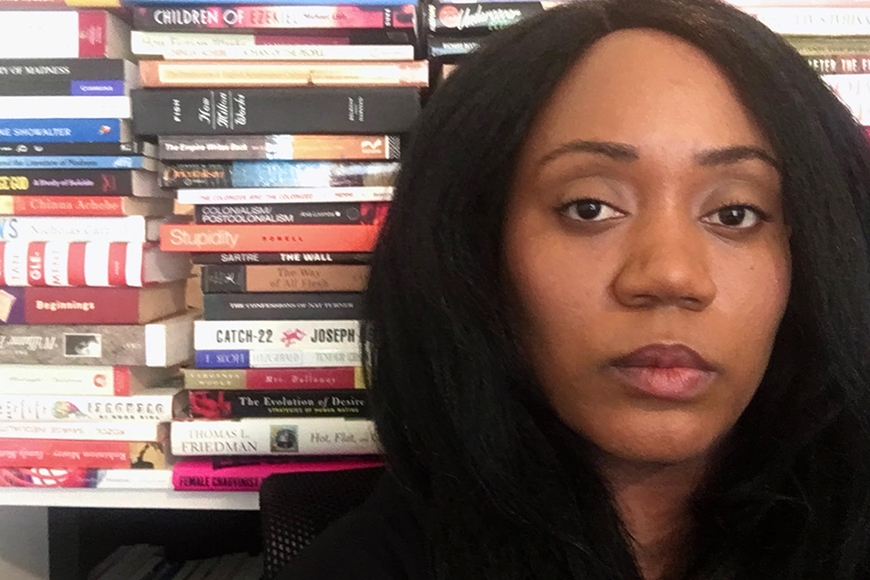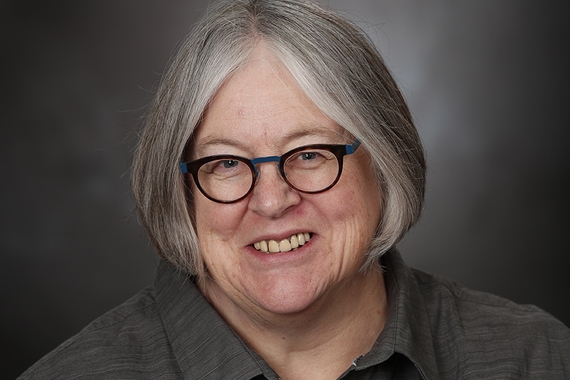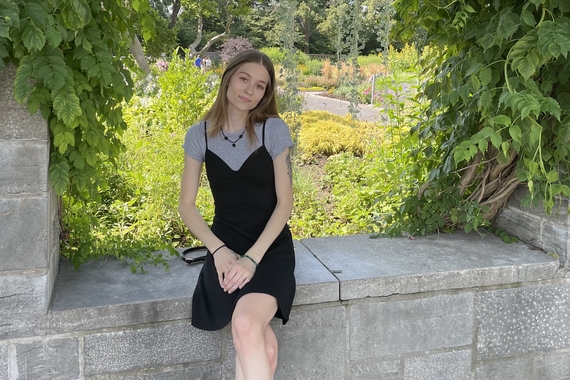Meet Assistant Professor Megan Finch
This fall, the Department of English welcomed Dr. Megan Finch as assistant professor here at the University of MInnesota. Professor Finch received a BA in English at the University of California, Davis and a PhD in English from Brandeis University, where she was awarded a Mellon Dissertation-Year Fellowship; her dissertation is titled "Unreasonable Blackness: Black Women Writing Madness, 1967–Present." Last year Finch served as Visiting Assistant Professor at Rhode Island School of Design in the Literary Art + Studies department.
Would you describe your current book project?
The project reads literary texts by Black women such as Octavia Butler, Toni Cade Bambara, and Toni Morrison, depicting “mad" Black women: schizophrenic teen mothers, infanticidal Black mothers, suicidal race women, and “fanatical” religious prophets. I argue that these characters, made mad by an anti-Black world, are depicted not primarily in order to highlight the effects of racism but to call into question normative definitions of reason and sanity—produced by the novel form—and to imagine modes of being and forming community beyond the individualistic mode of being reified in the era of Enlightenment/Enslavement.
"I’m excited about working and
thinking with graduate and
undergraduate students here
at the U. So much thinking
emerges from/is advanced
in conversation."
What's the next project?
Like many, I am incredibly anxious about climate change (while recognizing that anxiety as a privilege). My next project will consider paralysis in terms of meaningful and effective climate change action as a consequence of forms of possessive individualism reified through the disavowal of Black and Indigenous modes of being. Like my current project, it is concerned with the articulation of possessive individualism and/as reason and in relationship to enslavement in/and the so-called New World.
This project is founded in/is an attempt to limit a personal, deep-seated existential dread.
What is your favorite work to teach?
It’s difficult to choose between two very different texts: Toni Morrison’s Beloved and Thomas Dixon’s The Clansman. Though they could not be more different, both are indispensable to understanding the production of whiteness and Blackness in the present (though I am not suggesting that they are the only texts required to do so). Well, The Clansman is probably dispensable in the sense of its being exchangeable, but I consistently teach it nonetheless.
What are you most excited about in joining the English faculty at the University of Minnesota?
I’ve been struck and overwhelmed (in a positive way) with the kindness and intellectual generosity of the faculty (which I associate with a midwestern sensibility and about which I may be woefully coastal, i.e. ignorant). Not only have so many people invited me to outdoor get-togethers or future outings in the post-pandemic world, they have also allowed me to drone on about various ideas (mainly Henry James's The Bostonians, as I just finished teaching it). Equally, I’m excited about working and thinking with graduate and undergraduate students here at the U. So much thinking emerges from/is advanced in conversation that I can’t express how important it is, and how rewarding it has been in the past few weeks, to engage with such intelligent people.
Where did you grow up? Is there anything—food, geography, feeling—you miss?
I grew up in Northern California and lived for a decent number of years in Southern California before moving to the East Coast. I have not been back in a few years, and what I really miss is Round Table Pizza. It’s a fairly well-known West Coast chain, and though few people would call it the pinnacle of pizza perfection . . . I would, and I LOVE IT! In fact, the greatest gift I have ever and will ever receive was my stepmother overnighting six Round Table pizzas to Boston (they don’t freeze their pizzas so she literally bought six pizzas and dry ice, drove to the airport, and had them shipped and then driven to my apartment over the span of eight hours).
What was the most intriguing book/essay you've read this year?
Afropessimism by Frank B. Wilderson III: my Father’s Day present to my dad was this book and a conversation about it (he was glad to have read it but didn’t necessarily enjoy the experience)! I think it’s a great “clarification" of an important and controversial theory. On the one hand, I think it clarifies the limits of the theory fairly clearly. I don’t think it will win any converts. On the other hand, it performs, in its failure to convincingly connect the meta-theory of afropessimism with Wilderson’s autobiography, the compelling possibility that the structure of narrative fails to describe Black positionality (for whom/which neither violence, nor anything else, is occasioned by transgression). A less qualified recommendation would be Saidiya Hartman’s Wayward Lives, Beautiful Experiments. For me, the (unintended) “failure” (though perhaps not?) in Wilderson’s connection of life and theory is the under-theorized relationship between Blackness and gender. Though much of contemporary Black scholarship engages Hortense Spiller’s argument that “we lose at least gender in the outcome” under conditions of unfreedom, its anagrammatic nature (Sharpe) or its inherence at the existential level (Douglass) is brilliantly and beautifully theorized in Hartman’s work.



